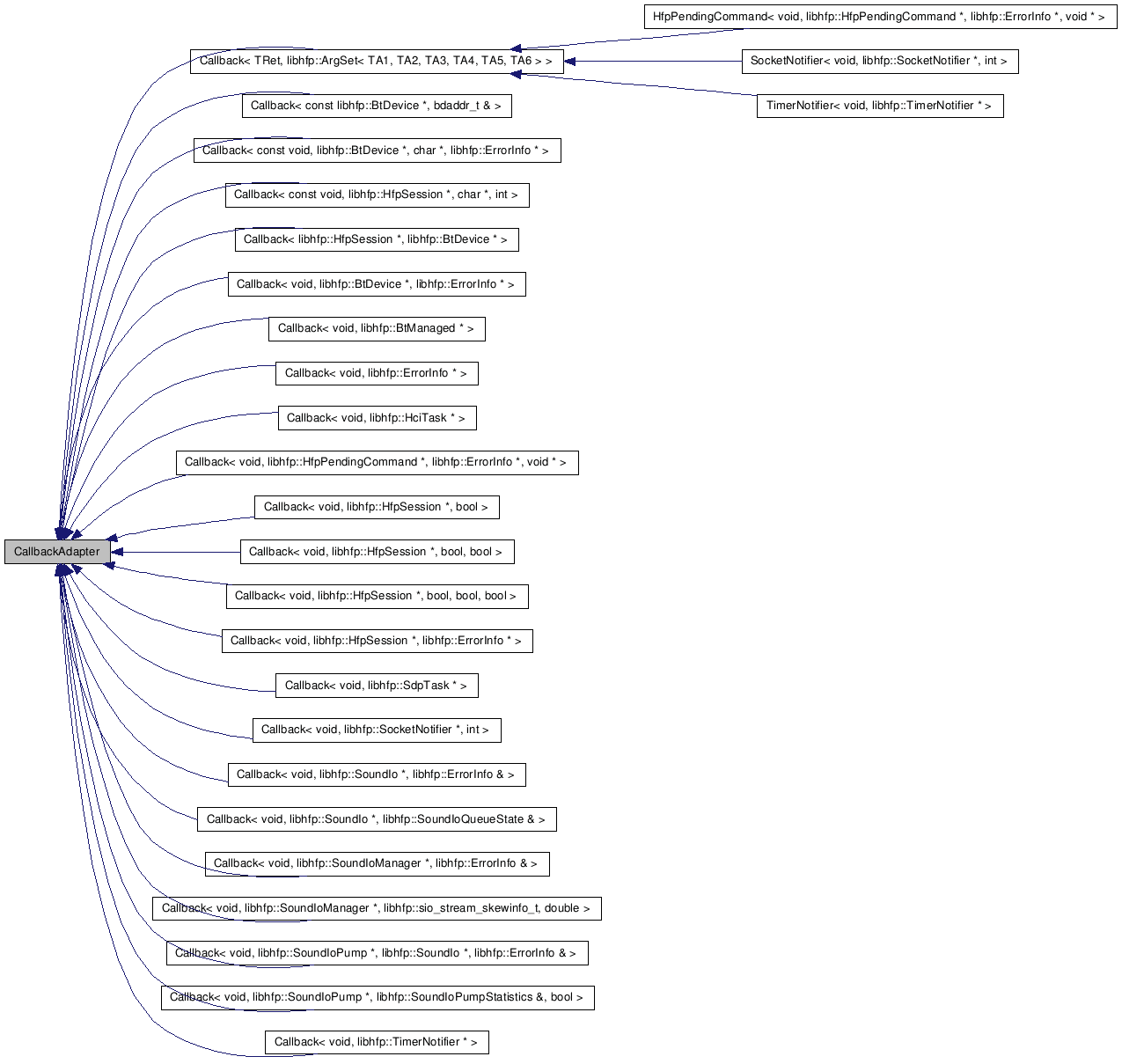
#include <events.h>

Public Member Functions | |
| bool | Registered (void) const |
| Test whether an object and method are registered to be called. | |
| void | Unregister (void) |
| Clear the currently registered object and method. | |
| template<typename TargT> | |
| void | Bind (TargT *objp, TRet(TargT::*mfp)(void)) |
| Register a method with a nonconforming signature to the callback object. | |
| void Bind | ( | TargT * | objp, | |
| TRet(TargT::*)(void) | mfp | |||
| ) | [inline] |
Register a method with a nonconforming signature to the callback object.
In the spirit of boost::bind, this module provides a generic argument remapping mechanism for target methods. This makes it possible to bind methods to callbacks where the method's signature does not match that of the callback, as long as a useful argument mapping can be created. This mechanism allows values to be stored at the time the method is bound to the callback, and passed to the target function each time the callback is invoked.
| objp | Target object to receive the callback | |
| mfp | Target method to receive the callback. The signature of the method need not conform to the signature of the callback, but it must have the same return type. |
objp->mfp, and must match the signature of mfp. Arguments will be saved in the callback object and passed to the method when the callback is invoked. Special keywords Arg1, Arg2, ... Arg6 can be used to identify parameters passed to the callback by its caller, as potential arguments to the nonconforming method.As an untypical example, suppose we want to log messages to stdout, and prefix them with either "error" or "warning" depending on which of two objects the message is submitted to.
class Target { void LogValue(const char *source, const char *value) { printf("%s: %d\n", source, value); } }; Target tgt; Callback<void, const char *> error; Callback<void, const char *> warning; error.Bind(&tgt, &Target::LogValue, "Error", Arg1); warning.Bind(&tgt, &Target::LogValue, "Error", Arg1); error("This is an error\n"); warning("This is a warning\n");
The output would be:
Error: This is an error Warning: This is a warning
This method has one specific advantage over boost::bind. It does not allocate memory under any circumstances. It will not unpredictably fail or throw an exception at runtime. On the down side, it is quite primitive compared to boost::bind. It does not support pointers to nonmember functions. Also, its stored parameters reside inside the Callback object itself. The amount of space reserved for stored parameters is larger than that set by boost::function, and Callback objects take up more space. Additionally, if a binding request is made that would exceed the space reserved for stored parameters, a compile time error will be generated.
 1.5.4
1.5.4